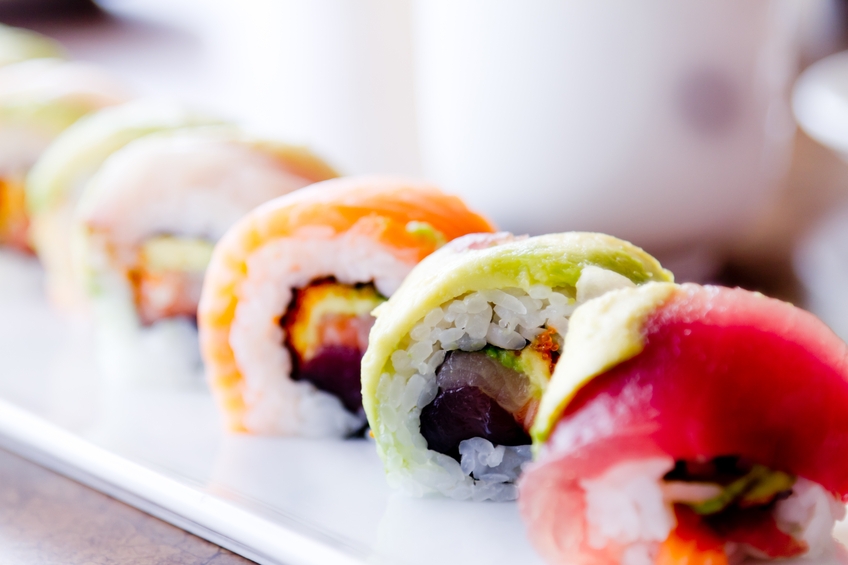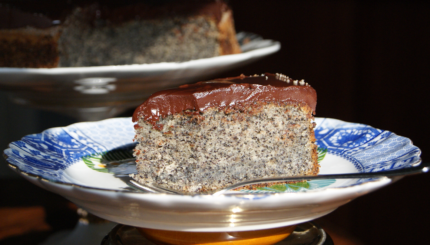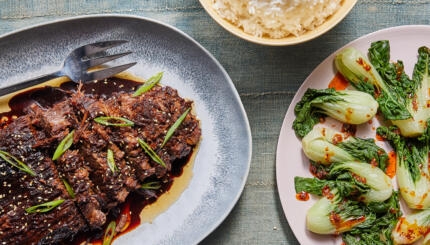Looking around the Orthodox neighborhoods in Brooklyn, you’ll probably spot more sushi bars than kosher delis. What’s the story behind this kosher sushi craze?
“It used to be that what defined a Jewish community was a synagogue and a kosher butcher…Then it was a kosher pizza shop. Now it’s a kosher sushi shop,” explained Rabbi Moshe Elefant to the New York Times.
Need to see it to believe it? Borough Park, NYC’s largest Hasidic community, has a 62 places listed on Yelp where you can eat sushi. According to Rabbi Elefant, chief operating officer of the Orthodox Union, 80-90% of the certified kosher restaurants in the city serve sushi.
Sushi assimilates pretty easily into the kosher diet: it’s pareve (considered neither meat nor dairy and can be eaten with either), and it’s a quick and healthy meal. What’s more, many sushi bars even offer smoked fish instead of raw.
Like any restaurant, kosher sushi bars tailor their menu for their customer base. You won’t see the word ‘dragon roll’ on the menu, for example, says the New York Times (dragons are not kosher).
The Nosher celebrates the traditions and recipes that have brought Jews together for centuries. Donate today to keep The Nosher's stories and recipes accessible to all.
What’s more, since rice joined the ranks of grains allowed during Passover according to Conservative Judaism, sushi might just become a new Passover tradition.
You can make your own “Jewish sushi” at home with one of these delicious-sounding recipes:
Smoked Salmon and Avocado Sushi, from The BBC
Udon Noodles and Avocado in Tahini Sauce, from Jewish Food Experience
Jewshi with Caper Mayo, from What Jew Wanna Eat
Sushi Hamantaschen, from Chabad.org
Hasidic
Pronounced: khah-SID-ik, Origin: Hebrew, a stream within ultra-Orthodox Judaism that grew out of an 18th-century mystical revival movement.
kosher
Pronounced: KOH-sher, Origin: Hebrew, adhering to kashrut, the traditional Jewish dietary laws.



